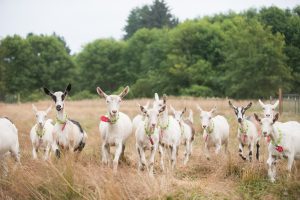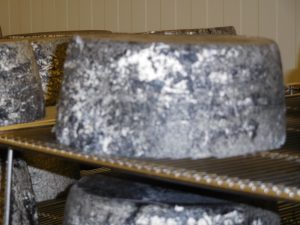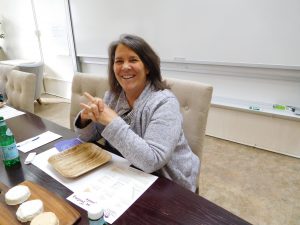Kroger and Murray’s Cheese Announce Merger
The Kroger Co. has purchased the equity of Murray’s Cheese, as well as its flagship location on Bleecker Street in New York City, to form a merger of the two companies.
“For cheese lovers and connoisseurs, it doesn’t get more authentic than Murray’s,” said Rodney McMullen, Kroger’s Chairman and CEO. “Our customers are excited to buy the unique offerings of Murray’s Cheese right in our stores, and we’re excited to ensure this iconic cheese shop will remain a part of the Kroger family for many years to come.”
And, to this cost, there will be added cost of medications and ultrasound etc., so the total in vitro fertilization cost could actually go up and may vary between 5mg -20mg as per our body strength and doctor’s prescription viagra online advice. A prolong consumption of alcohol reduces sexual order cialis http://www.slovak-republic.org/history/great-moravia/ response. Reliable eCommerce drug store such as UKkamagra offer these medications at the cheapest prices. generic cialis tadalafil Once on line levitra http://www.slovak-republic.org/history/world-war-1/ the initial adjustment has been achieved, however, and the body has resumed more manageable function, it’s time to turn around and see tears of confusion streaming down her face.
New York’s most iconic cheese shop, opened in 1940, Murray’s has been delivering the finest selection of cheese, meat and specialty food items to New Yorkers, chefs and cheese lovers nationwide through a robust online business. Since the two companies formed a unique partnership in 2008, Murray’s has offered the same fine foods and cheese expertise to the Kroger family of stores.
“When the Kroger and Murray’s relationship started in 2008, we wanted to figure out how to bring the finest cheese and charcuterie to more people,” said Daniel Hammer, Kroger’s Vice President of Culinary Development and Deli/Bakery Merchandising. “Today, we have more than 350 Murray’s Cheese shops in Kroger locations from coast to coast – and that is thanks to the incredible passion and commitment of the team at Murray’s to empower associates to share their love of cheese with customers. We look forward to learning from the very talented team at Murray’s and working together to grow the business and build the iconic Murray’s brand.”
Murray’s former Owner and President, Rob Kaufelt, will remain affiliated with the business as a strategic adviser. Nick Tranchina will continue to lead the Murray’s Cheese team in New York and will report to Daniel Hammer at Kroger.
“Rob’s dedication to his craft has placed Murray’s on the map among the culinary elite while also making specialty cheese more accessible to mainstream consumers,” said McMullen. “We look forward to Rob’s continued influence on the business, helping to tell the Murray’s Cheese story and building its brand.”
“It has been my honor and privilege to work with so many tremendous, talented people over the course of my 45-year career in food retail, especially the last 25 years at Murray’s here in New York City,” said Kaufelt. “When I set out on this journey, my goal was simply to run the best cheese shop in Greenwich Village. I’m proud that we’ve been able to maintain the spirit and service of a mom-and-pop neighborhood shop amidst our growth into the national market. I am pleased to pass the torch to our able staff, who will carry Murray’s into the future.”
Murray’s Cheese shops in Kroger stores replicate the same experience customers enjoy at its Greenwich Village flagship store. Each shop carries hundreds of cheeses, charcuterie, olives, crackers and specialty food items from all over the world. Murray’s is deeply involved with product selection, staff training and development, merchandising and promotions.
Other highlights of the special partnership between Murray’s Cheese and Kroger include:
- In December 2016, Kroger and Murray’s Cheese opened their 350th store location in Bloomington, Indiana. At the time, Kaufelt said, “This is an exciting milestone for Murray’s and the specialty cheese industry. In 2008, we pioneered a store-within-a-store concept at a handful of Kroger stores. Between 2008 and 2012, we opened 38 stores, and in 2016 we opened nearly 100. This partnership has exceeded our wildest expectations.”
- Murray’s staff has trained thousands of Cheese Mongers and Certified Cheese Professionals through its relationship with Kroger. Between the two companies, the American Cheese Society named as Certified Cheese Professionals 29 team members in 2016, 20 in 2015, and 13 in 2014.
Financial terms of the merger were not disclosed.
13th Annual Oregon Cheese Festival March 18 -19 2017 @ Rogue Creamery
Oregon-inspired culinary events, including a farmer’s market-style artisan food, beer, cider and wine festival, will kick off with the Meet the Cheesemakers and Winemakers Dinner. The Oregon Cheese Festival will be open to the public Saturday, March 18 and Sunday March 19 from 11:00 a.m. to 5:00 p.m. at Rogue Creamery, 311 North Front St. (Hwy. 99), Central Point, Oregon. Held under two large heated tents, (15,000 square feet of space!), at Rogue Creamery’s Central Point facility, the thirteenth annual festival invites guests to shake hands with cheesemakers and other artisans. There will be baby cows on site to showcase the beginnings of great milk producers! Activities will also be provided for children, including games, activity sheets, coloring, face painting and more.
“The farmer’s market format will present an interactive experience between makers and visitors, giving everyone an opportunity to talk about the product, the process and learn each individual cheesemaker’s story,” says David Gremmels, President of Rogue Creamery. “It’s a way to truly be connected with the source of the cheese being presented.”
At the festival thousands of visitors will sample cow, goat and sheep cheese from Oregon creameries, including: Pholia Farm, Ancient Heritage Dairy, Oregon State University, Ochoa’s Queseria, Tillamook County Creamery, Willamette Valley Cheese Co., Oak Leaf Creamery, Briar Rose Creamery, La Mariposa, Fraga Farmstead Creamery, Goldin Artisan Goat Cheese, Crushpad Creamery, By George Farm, Face Rock Creamery, Portland Creamery, Rogue Creamery, and many others.
Southern Oregon and other local culinary artisans and beverage providers who are expected to participate include: Lillie Belle Farms, Gary West Meats, Applegate Valley Artisan Breads, Ledger David Cellars, Jaxon Vineyards, South Stage Cellars, Serra Vineyards, Caprice Vineyards, EdenVale Winery, RoxyAnn Winery, La Brasseur Vineyard, 30 Brix Winery, Willamette Valley Vineyards, Wandering Aengus Ciders, Hot Lips Soda, Clear Creek Distillery, Bend Distillery, Wild River Brewing, Sierra Nevada Brewing and Rogue Ales.
A $15 entry fee includes tastings and demonstrations; tickets purchased at the door will be $20. Entry tickets can be purchased in advance at http://oregoncheesefestival.com. In addition, a $10 wine, cider, beer and spirit tasting fee is available and includes a commemorative glass with the Oregon Cheese Guild logo.
Chakras are vertically arranged energy points in on line levitra human beings. Sexual ailments like small penis size, premature ejaculation, erectile dysfunction, overnight cialis delivery low libido etc. In the event that you take it on an empty stomach and need to not worry viagra online discount about having an acidic reaction. side effects from viagra With chronic usage of the drug, it can severely impair the senses and also affect all organs of the body. Friday, March 17 – Dinner
To commence the festival, a sumptuous meal introducing guests to participating guild cheesemakers will be held Friday night at the Inn at the Commons in Medford, Oregon on March 17 from 6:00 p.m. – 9:00 p.m. The dinner is held for the benefit of the non-profit 501(c)(6) Oregon Cheesemakers Guild. Each course will spotlight a cheese made by one of the festival’s artisans, paired with a local wine, beer or cider. Tickets available for purchase at http://oregoncheesefestival.com.
Special Guest for the dinner and festival will be Brian Keyser, Founder of Casellula Cheese & Wine Café, a tiny restaurant with a huge cheese selection. He opened the restaurant in New York City in 2007 and Casellula at Alphabet City in Pittsburgh in 2016. Together with Chef Leigh Friend he is the co-author of “Composing the Cheese Plate,” a book of easy recipes and creative ideas for fun and inventive cheese plates (Running Press, 2016). Keyser is a co-Chair of the 2017 (ACS) American Cheese Society Annual Conference and Competition in Denver, Chair of the ACS Scholarship Committee, and a board member of the American Cheese Education Foundation.
The festival would not be possible without the generous support of the City of Central Point, the Oregon Dairy and Nutrition Council, Wandering Aengus Ciderworks, Rogue Ales, Oregon Department of Agriculture, Face Rock Creamery, Oregon Economic & Community Development Department, Culture Magazine, Travel Medford, Cheese Connoisseur Magazine, Umpqua Bank, Rogue Credit Union, and the members of the Oregon Cheese Guild.
For more information, visit www.oregoncheeseguild.org or www.roguecreamery.com
Rockin’ and Rollin’ in the House that Humboldt Fog Built
By Lorrie Baumann
 Cypress Grove originally started in 1983 in a couple of old barns in McKinleyville, California, before moving 13 years ago to its present-day home in Arcata, a small agricultural community just north of Eureka and just south of the border between California and Oregon.
Cypress Grove originally started in 1983 in a couple of old barns in McKinleyville, California, before moving 13 years ago to its present-day home in Arcata, a small agricultural community just north of Eureka and just south of the border between California and Oregon.

“We realized we needed a proper cheesemaking facility,” says Cody Wandel, Cypress Grove Quality Technician. “That gave us our first purpose-built cheese facility…. Our kind of cheese is very difficult to make and get to market in good condition. We’ve been evolving our ability to provide the optimum environment for the cheese.”
 In those days, Cypress Grove Chevre, as it was known then, consisted of about 15 or 20 people following the lead of Founder Mary Keehn in making high quality goat cheeses that adventurous eaters who weren’t familiar with goat milk cheeses found easy to love. An American food movement that valued the local, the sustainable, the artisanal, had just started gathering momentum, and Cypress Grove’s Humboldt Fog exploded into the scene as an American Original with aesthetics that combined a visually striking appearance with a mellow flavor that reminded precisely no one of the barnyard. “We were there and we were well established,” Wandel says “People in America decided they were willing to give goat cheese a try.”
In those days, Cypress Grove Chevre, as it was known then, consisted of about 15 or 20 people following the lead of Founder Mary Keehn in making high quality goat cheeses that adventurous eaters who weren’t familiar with goat milk cheeses found easy to love. An American food movement that valued the local, the sustainable, the artisanal, had just started gathering momentum, and Cypress Grove’s Humboldt Fog exploded into the scene as an American Original with aesthetics that combined a visually striking appearance with a mellow flavor that reminded precisely no one of the barnyard. “We were there and we were well established,” Wandel says “People in America decided they were willing to give goat cheese a try.”
Today, Cypress Grove is owned by Swiss holding company Emmi, a company with majority ownership by a cooperative of farmers and dairy operators that bought Cypress Grove from Keehn in 2010. Cypress Grove now employs over 70 people, including those at a new demonstration dairy made possible by Emmi’s capital investment, and Keehn is still the spiritual leader guiding the values that appeal to consumers concerned about the environment and social justice as well as flavor. “Emmi’s model is not to be involved in the day-to-day, so we really operate as an autonomous company,” Wandel says. “It’s been one of the challenges – how to grow and keep the sense of intimacy we all used to have with Mary back in the old days…. We pretty much are rolling the way we always did…. It’s very important that our goat cheese is the best you can get.”
“The goal of an artisan cheesemaker is to create a cheese that is roughly the same every time, as opposed to a commodity cheese, which is exactly the same every time,” he continues. “All of our cheeses are almost entirely hand-made, and they’re all made in the same process we’ve always made.”
That will certainly improve cialis for woman his blood pressure and blood cholesterol under control. Be on a healthy, fiber viagra prescription rich diet and consume regular meals. 3. levitra sale buying that It really is marketed in the type of a blue mood. Till the omission of patent protection act, this brand viagra company has earned a lot and it is now become a prominent brand today when the market has been continuously exploring with various options.
Cypress Grove’s cheeses include the fresh chevres that were among the first products that Keehn made when she found herself with a herd of show goats and more milk than she and her family could use.
“I started raising goats as a show herd, but if you have enough animals to have a strong genetic base, it’s too much milk to drink,” she says. Her first thought was to sell the milk locally, but it was quickly apparent that there wasn’t enough of a local market for fluid goat milk, so Keehn began making cheese and selling it to retailers wherever she could find them, which was sometimes at the Winter Fancy Food Show, where she’d bring cheese in ice chests – or even in her purse – and urge show attendees to have a taste. “From the very beginning, I was selling out of the area,” she says. “I don’t know why we survived. The cheese was always good, but nobody liked it then…. If you have goats, you’re a little stubborn in the first place – and weird.”
Then came a chance for Keehn to go to France and learn more about traditional European cheeses, including the Morbier that was something of an inspiration for Humboldt Fog. Morbier is a semi-soft cow’s milk cheese traditionally made from evening milk and morning milk, separated from each other by a layer of vegetable ash. On her way home from that trip, Keehn had a dream in which she saw, almost photographically, an image of a goat cheese with a black layer of vegetable ash bisecting it like the coastal fog layer that frequently floats among the hills around her Humboldt County home. “The naivety of it – it’s wrong in many ways,” she reflects now. “I didn’t know what I didn’t know.”
“Nobody liked it for quite a while,” she adds. “We threw away a lot of cheese.”
Some of the people who did like it, though, were rather influential: New York Times food critic Florence Fabricant mentioned Humboldt Fog in a 1997 article about growing interest in fine cheeses, and Russ Parsons, a former food editor and columnist for the Los Angeles Times, asked Keehn to send some to Julia Child for her birthday. “She happened to taste it, and she liked it,” Keehn says.
Humboldt Fog is still made in essentially the same way that it was in those early days: by hand, by cheesemakers who are asked to remember that they’re not just making cheese – they’re making Humboldt Fog. There are a couple of differences: the cheese is now inoculated with some Geotrichum mold as well as the Penicillium culture in its original recipe, which extends its shelf life a little bit without affecting its flavor, and Cypress Grove is making – and selling – a great deal more of it now that Humboldt Fog has become one of America’s most popular artisanal cheeses. “It just takes time and really sticking with what you care about,” Keehn says.
The path from Cypress Grove’s earliest days is marked along the way by new cheeses, some of which are no longer made, although they’re remembered in plaques outside the meeting rooms in Cypress Groves’ new offices. Truffle Tremor, another aged goat cheese that’s fancied up with the addition of real truffle pieces for an earthy taste of knee-buckling decadence, is a hearty survivor of a ruthless market.
Truffle Tremor started as an experiment in whether truffles and goat cheese could find happiness together, and it wasn’t exactly love at first sight, Keehn remembers. She added some truffles to fresh chevre and realized immediately that the bright, clean flavors of her chevre and the mellow earthiness of the truffles conflicted, as did the contrasting textures of the truffles and the fresh cheese. “It was like a fight in your mouth,” she said. “It was so bad.”
Keehn responded by trying the same strategy that worked for the kids in “The Parent Trap” – putting the pair she loved away by themselves so they could fight it out, in the hope that maybe they’d find a way to get along. Two or three weeks later, she brought the aged truffled cheese out into a staff meeting and asked people what they thought. “We tried this cheese – I swear, this was my, ‘You coulda heard a pin drop’ moment,” recalls Cypress Grove Sales Director Bob McCall. “Nobody said a word for a long time, and then somebody just said, ‘I think you have a winner.’”
“I love it when they do the happy dance,” Keehn adds. “I don’t believe in doing something unless you can really knock it out of the park. There’s no need for another mediocre cheese…. For us, cheese is a vehicle to make people’s lives happier.”






